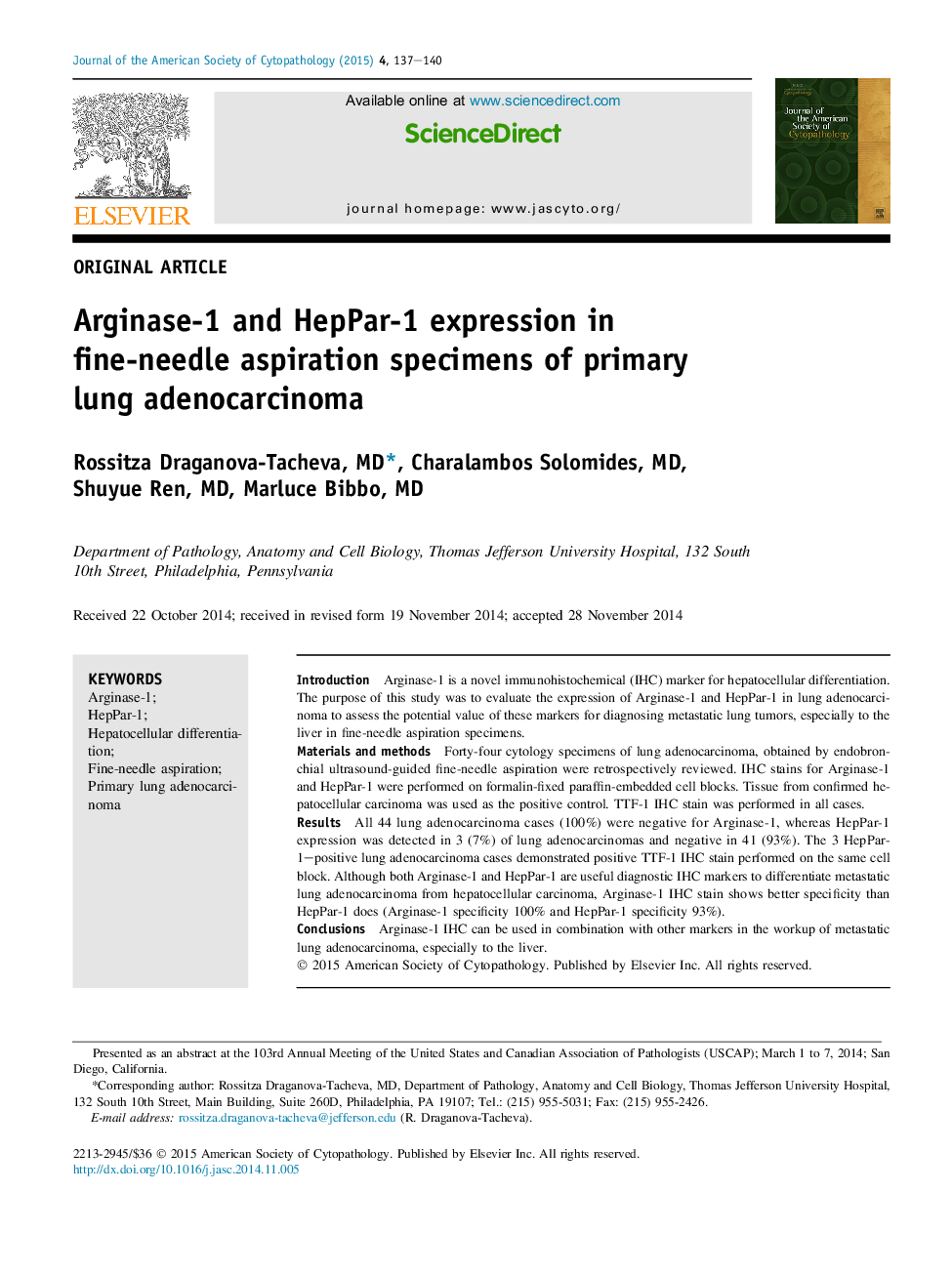| Article ID | Journal | Published Year | Pages | File Type |
|---|---|---|---|---|
| 2776203 | Journal of the American Society of Cytopathology | 2015 | 4 Pages |
IntroductionArginase-1 is a novel immunohistochemical (IHC) marker for hepatocellular differentiation. The purpose of this study was to evaluate the expression of Arginase-1 and HepPar-1 in lung adenocarcinoma to assess the potential value of these markers for diagnosing metastatic lung tumors, especially to the liver in fine-needle aspiration specimens.Materials and methodsForty-four cytology specimens of lung adenocarcinoma, obtained by endobronchial ultrasound-guided fine-needle aspiration were retrospectively reviewed. IHC stains for Arginase-1 and HepPar-1 were performed on formalin-fixed paraffin-embedded cell blocks. Tissue from confirmed hepatocellular carcinoma was used as the positive control. TTF-1 IHC stain was performed in all cases.ResultsAll 44 lung adenocarcinoma cases (100%) were negative for Arginase-1, whereas HepPar-1 expression was detected in 3 (7%) of lung adenocarcinomas and negative in 41 (93%). The 3 HepPar-1–positive lung adenocarcinoma cases demonstrated positive TTF-1 IHC stain performed on the same cell block. Although both Arginase-1 and HepPar-1 are useful diagnostic IHC markers to differentiate metastatic lung adenocarcinoma from hepatocellular carcinoma, Arginase-1 IHC stain shows better specificity than HepPar-1 does (Arginase-1 specificity 100% and HepPar-1 specificity 93%).ConclusionsArginase-1 IHC can be used in combination with other markers in the workup of metastatic lung adenocarcinoma, especially to the liver.
